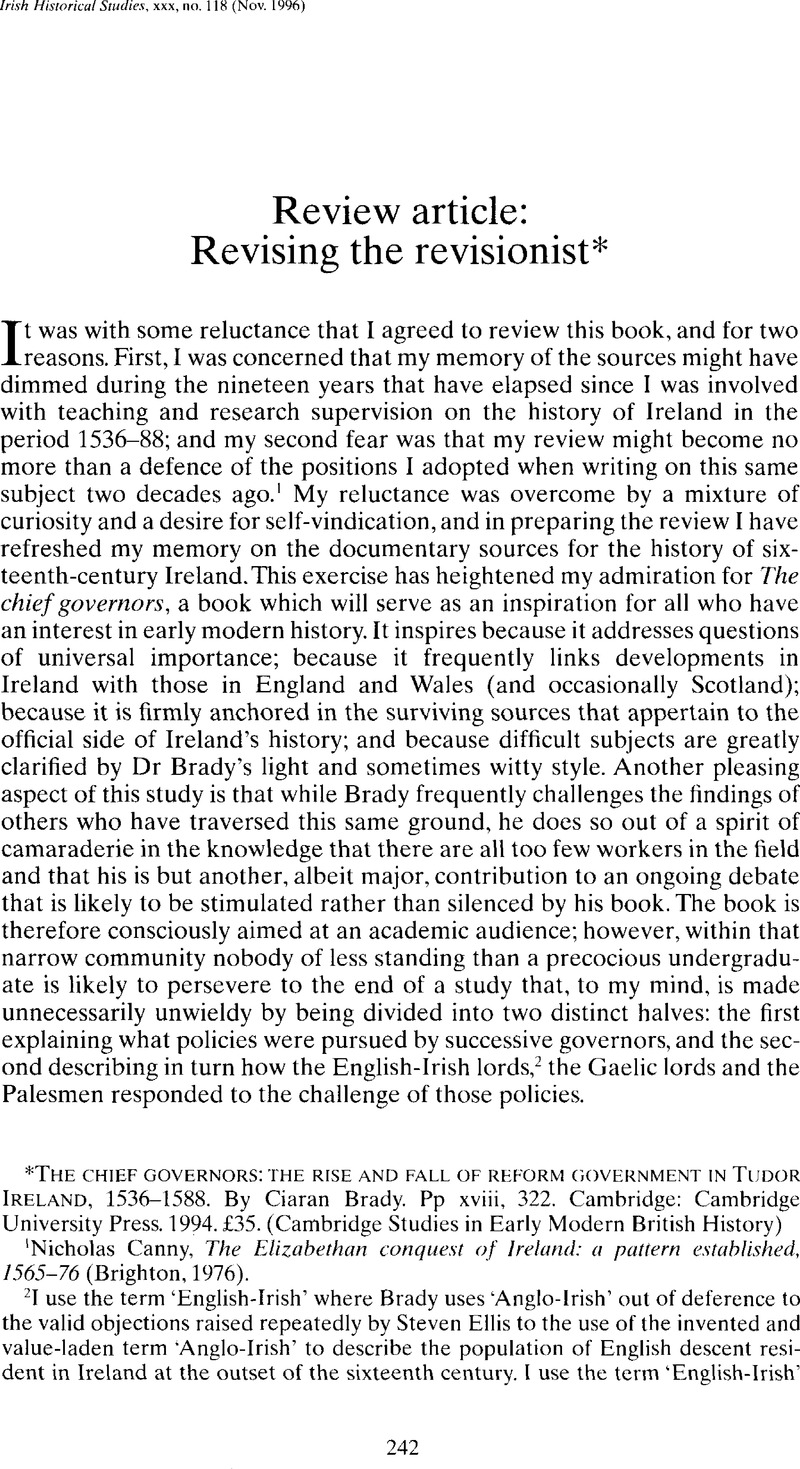No CrossRef data available.
Article contents
Review Article: Revising the revisionist*
Published online by Cambridge University Press: 28 July 2016
Abstract

- Type
- Review Article
- Information
- Copyright
- Copyright © Irish Historical Studies Publications Ltd 1996
Footnotes
The chief governors: the rise and fall of reform government in Tudor Ireland, 1536–1588. By Ciaran Brady. Pp xviii, 322. Cambridge: Cambridge University Press. 1994. £35. (Cambridge Studies in Early Modern British History)
References
1 Canny, Nicholas, The Elizabethan conquest of Ireland: a pattern established, 1565–76 (Brighton, 1976)Google Scholar.
2 I use the term ‘English-Irish’ where Brady uses ‘Anglo-Irish’ out of deference to the valid objections raised repeatedly by Steven Ellis to the use of the invented and value-laden term ‘Anglo-Irish’ to describe the population of English descent resident in Ireland at the outset of the sixteenth century. I use the term ‘English-Irish’ because this was the sixteenth-century rendering in English of the Latin description ‘Anglo-Hibernici’. When treating of the later sixteenth century, I use ‘Old English’ to describe these same people because this was the term that came into use at that time.
3 Bradshaw, Brendan, The Irish constitutional revolution of the sixteenth century (Cambridge, 1979), pt IIICrossRefGoogle Scholar.
4 Edmund Tremayne, ‘Causes why Ireland is not reformed’, 1571 (P.R.O., SP 63/32/65).
5 Edmund Tremayne,’Description of the country’, 1571 (ibid., SP 63/32/66).
6 Ed. Tre[mayne], ‘Advice on Ireland’, n.d. (B.L., Add. MS 48015).
7 Tremayne, ’Description of the country’.
8 Ibid.
9 Cited in Canny, Elizabethan conquest, p. 90.
10 Tremayne, ‘Description of the country’.
11 Wallop to Walsingham, 3 Jan. 1580 (P.R.O., SP 63/71/1); same to same, 14 Jan. 1581 (ibid., SP 63/81/28). This section of the review draws heavily on chapter 2 (‘The English presence in Spenser’s Ireland’) of my forthcoming book Ireland in the English colonial system.
12 Wallop to Walsingham, 9 Sept. 1580 (P.R.O., SP 63/76/21); Fulke GreviUe to Walsingham, 14 July 1580 (ibid., SP 63/74/32). These letters hint at a fantastic scheme to bring most of Munster into the hands of Leicester, Walsingham, Philip Sidney and their associates the details of which were conveyed orally by Greville.


